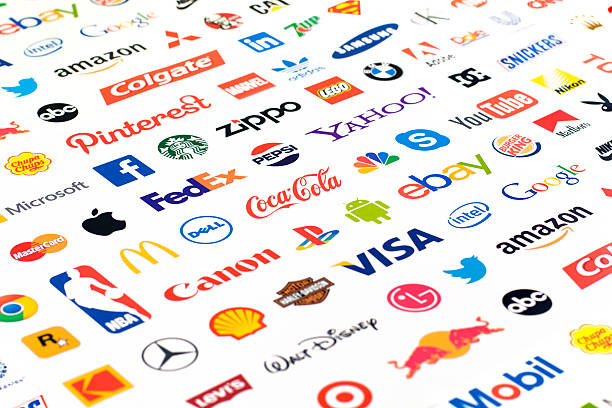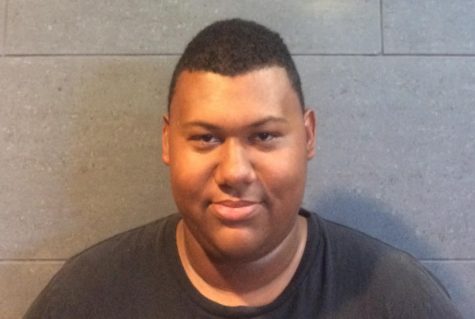The rise of “brand tribes” and the personal illusion of individualism
April 24, 2018
During the early 2000s television saw the use of shows created by Bryan Fuller, which had themes that while they were delightfully morbid they were both philosophic and deep. The first being the philosophic life after death show, Dead Like Me have managed to capture the facts of life through death. The show deals with the after life of Georgia “George” Lass, as she must reap souls before moving on to the here after. In episode five of season one, Reaping Havoc, her fellow reaper, Betty takes a person’s photo before reaping their soul.
She does this to have a signature, to break away from the whole “cloak and dagger” thing. Later on she brings some of the sacks of Polaroids to George’s apartment only to show one of the truest lessons life can offer someone. She says, “There are a finite number of personalities in the world and I have met them all.” In the end, she reveals that despite what we all think people are not like snowflakes… unique.
Recently, I began to try and see if this was actually true to society. I began to look around campus and other places I would be in my life to examine the different styles of clothes that people wear. I slowly began to realize that based on the clothes people wear we are all very similar.
Some of us rock the “casual athlete” style with others being closer to the “preppy urbanite” look. While we are all so busy trying to be unique from one another we have created identities and personalities that can easily be categorized.
There are officially a finite number of personalities and on this campus, not even having to venture into the city of Buffalo; you can actually meet them all.
Whether it’s keeping up with the trends or wearing that same pair of comfortable jeans from 2009 or carrying the latest Louis Vuitton bag. These aren’t necessarily the ways we individualize ourselves because there are plenty of people that think the same way about fashion.
One method of escaping this is by not associating yourself with a specific brand label but this only fails. People can be categorized because they want to be. The idea of brand tribes resonates somewhere in the law of the jungle, or in this case the urban jungle.
Back in the 1990’s, companies like Nike would use “cool hunters” to scope out the latest trends and the most up to date statements in fashion. However, with social media and the willingness of millennials to post everything about their lives online, there is no need for the cool hunters anymore.
Since millennials are more than willing to share every other aspect of their lives, data analytics companies are able to use this information to figure out what the latest trends are as well as what designs are coming into the public eye.
Despite trying to resist corporations and the influence they wiled in society, we seem to trust them more than we do our own government. One example of this comes from chapter one of Douglas Rushkoff’s book, Life Inc., which, talks a great deal about the creation and development of the corporation throughout history. In doing this he runs into some sociological terms in describing some of the means for the corporation to exist.
He writes, “The division of labor is not the same thing as the specialization of labor.” He uses Durkheim based theory in describing just how labor is separated, but really delves into the corporate domination of our lives when he talks about the love/hate relationship we have for the corporations of our lives. “We hate Nike and love Airwalk, hate Hummer and love Mini, hate Nabisco and love Hain, hate A&P, and love Whole Foods. Or vice versa. But we love corporations.” In this sentence, Rushkoff really grasps onto the collective conscious’ thoughts on corporations and branding.
Brand tribes have been on the rise and this is something that really brings that point home. People feel that being unique means that they have to show who they are not through their taste in fashion, music, food or beliefs, but in the labels, they were.
I used to own an Aeropostale shirt that I never wore because all along the side the shirt had patches spelling the company’s name. I hated the shirt because I didn’t need to walk around and be a human billboard. I examine what people wear and most of it is the same, if not it’s a lackluster combination of the same clothes but in a different color. There is no real individuality when it comes to certain styles anymore.
Rushkoff also writes, “For this embedded bias of the charter itself: to maintain the central authority of the state while granting monopoly power to the corporation.” This centers on how the corporation has distinctive control over a person’s way of life or needs. Since many corporations produce products that people require for their everyday life, corporations have become an essential part of life for people.
Millennials have even been taught to think like they are individual corporations. Rather than talk about how they can make their work stand out from other people they are working in the same field with. Instead they are taught to focus on their individual style and discover how they can visually separate themselves from the competition. Meanwhile they can be grossly under qualified for the career field they are looking for a job in.
This is where the idea of the world needing bad journalists, bad lawyers or bad stockbrokers really comes from. People hide behind their brand because they are not taught to be critical thinkers or even to make their work stand out just as much as they do. Personality is something lacking from society because so many people feel that they are living out their online life
Sure we can hate corporations and have the usual love/hate relationship with them that Buffalonians do with the Bills but that won’t stop someone from going to the store and buying a Nike t-shirt that they already have in six other colors.





